It all started few years back in a small city of Egypt. I arrived in Hurghada on the western coast of the Red Sea. Snorkeling was the sole purpose to be in Hurghada. Scuba Diving was a big game for me during those days, so I restricted myself to Snorkeling only.
First two sessions of Snorkeling went awful. After that, I started swimming comfortably with the help of the fins and snorkel. At that point, I enjoyed the first encounter with the underwater world. It was a love at first sight with the marine life. There only I decided to become a certified diver. Two years later, I completed PADI Open Water Diver and Advanced Open Water Diver Certifications at Swaraj Dweep (Havelock Island) in India.
As a certified Advanced Open Water Diver, it opened a whole new world during my backpacking trips. Scuba Diving became an essential part of my travels. Later, I dived at few places in Indonesia and Thailand, where I enjoyed the marine life containing corals, turtles, reef sharks, manta rays and a large variety of colourful fishes. At Tulamben in Bali Island, I also got a chance to dive at a shipwreck. If you are interested in Scuba Diving Certifications in India, then this post will help you with the correct information to get a certification.
Contents
1. Why Do We Need Scuba Diving Certifications?
2. What is PADI, SSI And NAUI?
3. Scuba Diving Courses in India
4. Scuba Diving Schools in Swaraj Dweep (Havelock Islands)
5. Other Popular Destinations to Learn Scuba Diving
6. PADI Courses For The Beginners
1. Why Do We Need Scuba Diving Certifications?
Diving certifications are the benchmark to ensure you have a proper diving training from an authorised agency to dive safely. These training programs teach you the required skills, handling of diving equipments and techniques to minimize the risk under the water. Almost all dive operators, diving shops, equipment sellers, diving cylinder providers insist for the certification card, while providing their services.
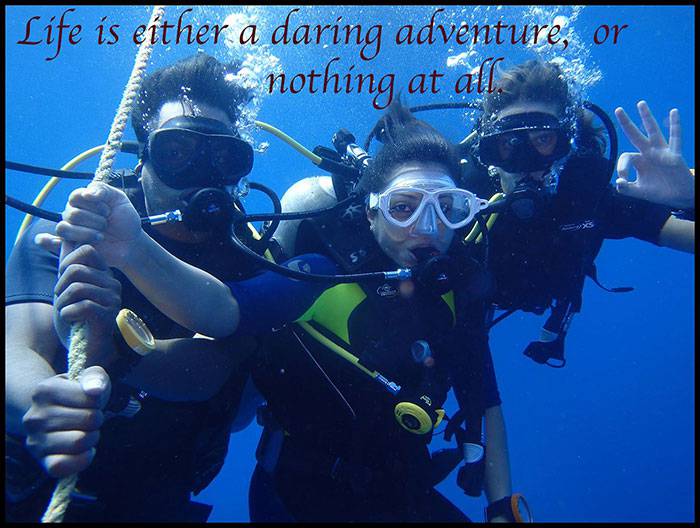
These certification cards have the information regarding the bearer’s name and certification level, certifying institutes, instructor, type of certifications, etc. There are thousands of diving schools, who provide these certifications worldwide.
2. What is PADI, SSI And NAUI?
These are the professional organisations who works as the association of the scuba divers as well as the training and certifying agencies. They prepare, assess and certify the divers as well as the diving instructors according to their knowledge and skills. If you search at Google, you will find at least 100 such organisations worldwide, but PADI, SSI and NAUI are the most honoured names. Here is the brief introduction of each one:
PADI
PADI stands for Professional Association of Diving Instructors. It contains the largest pool of divers (around half of the divers certified in the world attend a PADI course). However, it is repeatedly subjected to criticism due to the low standard of training courses and money focussing strategies. After 8-9 dives, it certifies you as an Advanced Open Water Diver. It charges heavily for online course materials and demands more money for offline printed materials. It insists its students to purchase course materials, so that they can maintain an adequate knowledge-level in the future.
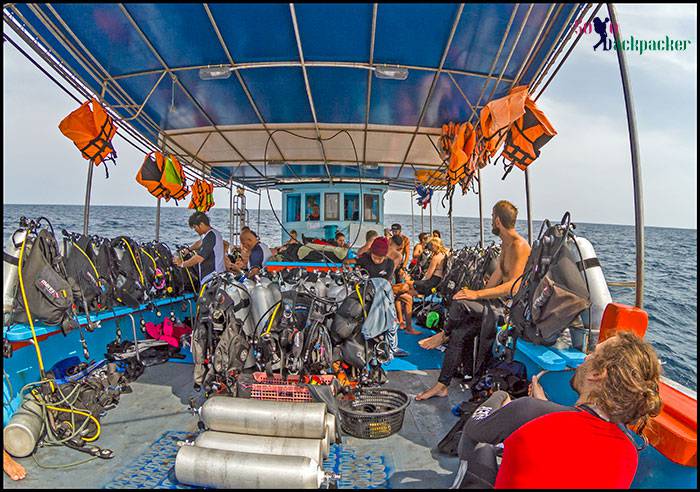
A PADI instructor can instruct his/her students independently under his/her supervision without affiliating to a dive shop, and he/she can certify them also. PADI maintains an extensive online network. It enables a dive center to check the credentials online even if someone forgets the certification card at home. After completion of the course, you receive a temporary card from the diving school. Within few weeks, PADI regional office send a permanent certification card at your postal address.
SSI
Scuba Schools International (SSI) is another popular organisation. It doesn’t allow its instructors to instruct independently. It doesn’t charge heavily for online course materials and doesn’t force students to buy it. It has a longer and more rigorous Advanced Diver Program to provide adequate training and experience to an advanced diver.
SSI Certification cards are processed locally, so you receive a permanent card, not the temporary one, from your diving school. SSI schools are equally able to check your certification credentials online.
NAUI
National Association of Underwater Instructors (NAUI) is primarily based in USA. It offers you the freedom to conduct your own class and open water sessions the way you see fit. Its training program is more strict than the others.
All of these organisations are regulated by the World Recreational Scuba Training Council (WRSTC) , that decides the training levels and minimum standards of all the courses. All of these agencies have to comply with ISO Standards that attribute standards to comparable levels of diver training.
Which One Is Better?
At the end, a choice is purely yours. They all teach you Scuba Diving. They all have their own strategies and techniques to make diving enjoyable as well as safe. All of these certifications are valid for life-time and recognised worldwide at any diving site/centre or equipment shop. You can also switch from one organisation to another without any problem at any stage during your diving career. Your previous certificate will be valid to qualify for the subsequent level of certification with a different organisation.
However, there may be a slight difference in the terminology of the courses. For example, PADI Advanced Open Water is not the same level as the SSI Advanced Open Water. It is equivalent to SSI Advanced Adventurer Qualification. The SSI Advanced Open Water Certification is equivalent to PADI Master Scuba Diver level. But still switching from one organisation to another is quite easy and straight-forward. I opted for PADI courses because it was easily available within my budget at Swaraj Dweep (Havelock Islands).
3. Scuba Diving Courses in India
There are tons of diving schools in India, mainly based in Goa, Netarani Island (near Goa, off the coast of Karnataka), Puducherry, Lakshadweep and Andaman Islands. I selected Swaraj Dweep (Havelock Island) in Andaman & Nicobar as I thought it would be the best place to pursue diving course in India.
I met many people during the course; who were trained and dived at the other places like Netarani, Lakshadweep and Goa. On the basis of their inputs, I can say that Goa and Puducherry don’t have any good schools to learn scuba diving. Netarani is good, but mostly for the certification purpose in mainland India. Lakshadweep maintains the most admirable coral system in India, and it is breathtakingly charming. But the diving activities are restricted in Lakshadweep by the government.
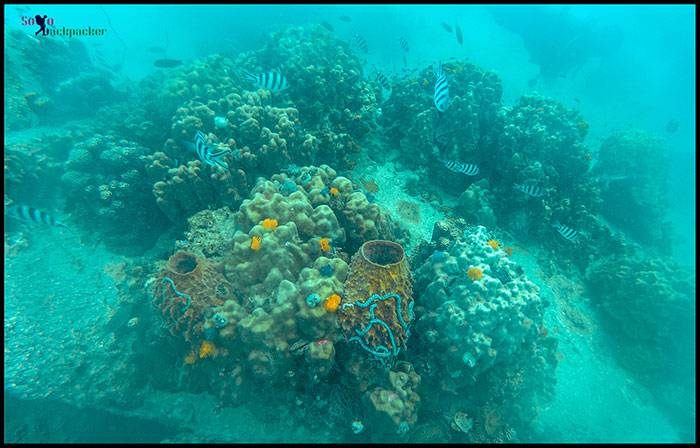
So, Havelock Island in Andaman & Nicobar is the only choice for the best diving schools in India. It maintains abundant marine life (far better than any other place in India), however lacks behind Lakshadweep in the coral system. There are many decent diving schools and sites in Havelock to make it an ultimate choice for diving. The only drawback with Havelock Island is the availability of cheap flight tickets from the places like Delhi.
4. Scuba Diving Schools in Swaraj Dweep (Havelock Islands)
There are at least 10 diving schools in Havelock Island. I contacted two of them, Barefoot Scuba (Dive Andaman) and DIVEIndia for my course. They are the most sought schools on the internet. During the initial queries, I was unsatisfied with the responses from Barefoot Scuba. I am not a good swimmer, but they never tried to encourage me. They replied back on every query in a straight-forward manner.
I was scared about the swimming test until I succeeded it. I asked if I could swim with masks and snorkel for 300 meters rather than 200 meters non-stop swim in accordance with the PADI course specifications. They replied back the masks and fins were not allowed at their center, and I had to pass the swim test to get the certifications. It was a big worry. During the course we were allowed to opt for 300 meters snorkeling instead of 200 meters swimming.
I asked same set of questions with DIVEIndia and received a detailed reply from Vinnie in a very professional manner. I felt comfortable with his reply. He explained everything in a proper manner and boosted my morale to attend the courses.
He also suggested me to go for swimming classes before enrolling in the courses. He informed that the swim test with the masks and fins were allowed at their centre. If I would be unable to pass the swim test, my advance amount would be used for Discover Scuba Diving Package. It doesn’t require any swim test.
Ultimately, I opted for Barefoot Scuba, because of the two reasons: First, their combo package for PADI Open Water plus Advanced Open Water course was cheaper than DIVEIndia (Difference was at least Rs.5500). DIVEIndia was expecting a revision in the course price for the next year session. They tried charging me as per the increased price.The revised price was not updated at their website.
Barefoot Scuba offered me the price mentioned in the website. Later, they also revised their course price for the next session, but they billed as per the old price. The most recent price for these courses is available at the websites of the respective centers.
Other reason was the accommodation option. The frame hut, a budget accommodation at Barefoot Scuba was available at Rs.300 (Rs.400 in year 2020) per night. At DIVEIndia its rate was Rs. 500 (Rs.600 in year 2020) per night.
Both centres maintain a good reputation in online reviews. I opted for Barefoot Scuba over DIVEIndia mainly because of the cost difference. I realised that it was indeed the best available choice in Havelock Island. They have a pool of very knowledgeable and well qualified instructors and dive masters. I never felt uncomfortable and scared during the 7-days course. Everything was explained and demonstrated in a proper manner. Diving with them was indeed a fun.
5. Other Popular Destinations to Learn Scuba Diving
Apart from a Scuba Diving School in India, you may choose to learn Scuba Diving in other countries also. Since it is possible to manage PADI Open Water Course and Advanced Open Water Course Certification in 8-9 days, you may try to get these certifications from any other country during a vacation. Similarly, Rescue Diver Course or Deep Diver course is also possible in 3-5 days. All certifications are valid for the lifetime and honoured worldwide. Let me tell you few exciting alternatives to Havelock Island for Scuba Diving Certifications:
1. Koh Tao, Thailand: Koh Tao is the world capital for Scuba Diving Certifications. Koh Tao is a small island in the Gulf on Thailand with crystal clear and warm water all around. The weather is fairly good all year on the island. The cost of the diving courses is perhaps most economical in the world and experience is amazing.
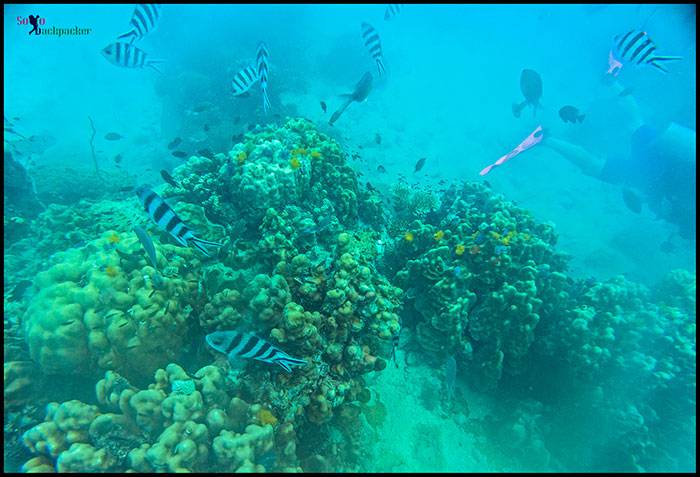
2. Gili Islands, Indonesia: Gili Islands, namely Gili Trawangan, Gili Meno and Gili Air are a set of three islands located in the Lombok Sea. It is about two hours away from Bali Island by a speed boat. Gili Islands is also a good place to get the Scuba Diving Certifications.
Please check this post to know more about Gili Islands: Scuba Diving in Gili Islands
3. Nha Trang, Vietnam: Nha Trang is also a nice place to learn Scuba Diving in a cost-effective manner. With its crystal-clear blue water, dozens of beach bars and surrounding islands to explore, Nha Trang is an ultimate destination for Scuba Diving.
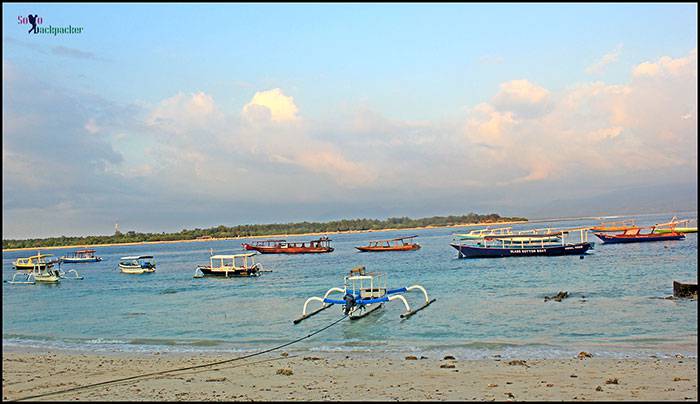
4. Dahab, Egypt: Dahab is a bit costlier than the other three. However, it is one of the most exciting diving destination in the world. It is a place to enjoy the colourful marine life in the Red Sea.
How My Love For Underwater World Started In Red Sea: Snorkeling in Red Sea near Hurghada, Egypt
Apart from all these, there are few other diving destinations in the countries like Philippines, Malaysia and Jordan where you can go for the Scuba Diving Certifications. Havelock Island is in fact a beautiful destination and a good place to learn Scuba Diving, but you may also fly to Thailand or Indonesia on the same price of a flight ticket. In that case, Thailand or Indonesia would be a better choice, where you can combined your diving courses with an international vacation.
6. PADI Courses For The Beginners
Discover Scuba Diving
This one is not a certification course actually. Discover Scuba Diving is just an introductory package of the underwater world for the tourists, who don’t have enough time to go for the certification courses. Duration of the program varies from few hours to 2 days. One should be at least 10 years old to enrol for the program.
There are no special skills requirements, but you must fill the PADI Medical Statement. You are allowed to dive up to the maximum depth of 12 meters with the certified instructors. You receive the local institute’s certificate after the completion of the program. During Open Water Diver Course that certification can be counted as the first dive.
Open Water Diver
The first PADI course available for beginners is the Open Water Diver.This is the most desired course worldwide. The duration of the course is about 4 days. You learn about basic diving theories related to air pressure, volume and density in the underwater world, diving equipment and their handling. You also learn about the primary diving skills like underwater navigation, floating, descend, ascend, buoyancy, breathing, various hazards of diving, basic diving tables, etc.
Before going for actual diving in the sea (Open Water), you learn basic skills in the confined water, either in a swimming pool or in a protected area at the beach. In Havelock, the Beach # 2 is considered as the primary centre for basic diving training by many schools.
As a PADI Open Water Diver, you become a certified entry-level diver. You are allowed to rent dive gear and get air fills. You may dive anywhere in the world up to the depth of 18 meters maximum in better or similar conditions to those you’ve trained in. As a certified PADI Open Water Diver, you also have the freedom to dive with a certified buddy independent of a dive professional. After the course, you are also eligible for PADI Advanced Open Water Diver Course.
Advanced Open Water Diver
It is basically a course to master some of the skills learned in basic course. The course modules consist of five dives in five different areas of interest.Deep Dive and Underwater Navigation are the compulsory modules. You can choose three more modules from the available options in consultation with your instructor. We opted for Buoyancy Control, Night Dive and Computer Dive. Other options are underwater photography, underwater videography, fish identification, wreck dive, etc.
The duration of the course is about 3 days. After successful completion of the course you become eligible to dive with an equally certified buddy anywhere in the world up to the depth of 30 meters maximum in better or similar conditions to those you’ve trained in.
I personally feel that the duration of the course is not adequate to certify us as an Advanced Open Water Diver. Diving is a highly risky game, and it needs a lot of skills to avoid the panic situation under the water. You may able to dive efficiently under the normal conditions, but the moment a situation arises, you are under the real test. To improve our learning, it is recommended, that we should dive more and more in rather shallow depth to gain more skills as well as confidence, before attempting frequently for our certification limit of 20-30 meters.
For Information: In year 2020, the Open Water Diver Course (OWC) price is approx Rs.26,000 and Advanced Open Water Diver Course (AOWC) price is approx Rs. 25,000. The combo package for both the courses (OWC+AOWC) is priced at approx Rs. 45,000.
Other Courses
The maximum depth limit for recreational dive is 40 meters worldwide. As you descend more and more in the water, your time underwater gets shorter to avoid nitrogen decompression sickness. At 30 meters, with 12 kg cylinder, you can stay for approximately 8 minutes. However, carrying more than one cylinder and NITROX, you can increase this time or you can also descend deeper. The visibility keep reducing and risks keep increasing with the depth. If you do not want to make a career in the diving and it is only a hobby, then Advanced Open Water course is sufficient to enjoy diving worldwide.
If you want to do more in diving, then after the Advanced Open Water course, you can opt for various specialised courses as per your interest, like Night Diving, Wreck Diving, Deep Diving, NITROX, Underwater Photography etc to polish your diving skills. With the specialised adventure courses of Night Diving and NITROX, you can go up to the depth of 40 meters, maximum depth limit for the recreational diving.
To gain more confidence while diving and to increase the comfort level, you can also go for Rescue Diver and Emergency First Response (EFR) Courses. But, again if you are not serious to become a diving instructor, I think this is the end of the diving courses for you.
To become a diving instructor, you can continue your diving education with the courses of Divemasters, Assistant Instructors and Instructors under PADI system.
7. Skill Sets Required For The Scuba Diving
Fitness Level
You should be mentally and physically fit before going for the Scuba Diving. At the beginning of the course, you will get a questionnaire to know about your medical history. If you answer any of those question as YES, then you need a certificate from the registered medical practitioner regarding your fitness level. If all your answer is NO, then you don’t need any certificate and an undertaking is sufficient.
Age Limit
Minimum age for PADI Open Water Diver Course is 12 years. After the age of 10 years one can receive PADI certifications as Junior Open Water Divers.
Swimming Skills
To get an Open Water Diver Certification:
1. You should be able to swim 200 m non-stop (no time restrictions, any stroke of your choice) or snorkel non-stop for 300 m with mask/fins/snorkel (which is actually easier, again no time-restrictions).
2. You should be able to float/tread water for 10 minutes (again any stroke of your choice).
Point 2 is relatively easy task. For first, I opted (in fact 6 members from our 7 members team) for 300-m snorkeling. I was comfortable in that, so the swimming requirements didn’t become an issue. But personally, I felt during the course that it would be very nice to learn swimming before going for the diving courses. Swimming skills give you more confidence underwater and if situation turns bad, you can handle that in a better way.
8. Accommodation At Sawraj Dweep During The Course
If you go to Havelock for the diving courses, you will find most of the diving schools are the part of expensive sea-facing resorts, where accommodation options are very costly. But one good thing is the frame hut, provided by these resorts to the student divers. These frame huts are raised inside the resort premises only and offers very basic budget accommodation with a bed, a mosquito net, a fan, a light and the shared bathrooms. Barefoot Scuba offers the hut in Rs. 400 per night, while DIVEIndia has the huts in Rs. 600 per night. These rates are without meal plan. If you opt for a meal plan, it may cost you approx Rs. 2000 per day. A single hut can accommodate two people maximum. These huts serve their purpose very well. If you arrange any reasonable accommodation outside the resort, you can stay there, but make sure to reach at the diving centre by 07.00 AM.
If you are in Havelock for the diving courses, don’t expect to explore each and every corner of this beautiful island. You don’t get enough time for that. A typical diving class starts early in the morning at 07.00 AM, and ends around 02.00 PM in the afternoon. Since sun sets early around 0500 PM in this part of India (in the month of October), you daily have only 2-3 hours to visit in the daylight. However, Havelock is not a very big island. You can push yourself to visit the gorgeous beaches and serene villages.
Please check this post to know about the beautiful beaches of Havelock Island: How to Explore The Beautiful Beaches of Havelock Island
Food at the resort’s restaurant are costlier than the outside cheap eating joints. However, I felt the rates at Barefoot’s Cafe Del Mar are good enough to eat there, otherwise one has to walk for 1 km to the local market. Welcome Restaurant in the main market is the most popular food joint in the Havelock Island.
As I said earlier I am very novice in the world of Scuba Diving, so I can’t suggest many things to you. But these are the observations I had during my introduction to the spectacular underwater world. Hope it will encourage many people to achieve their Scuba Diving dreams. Go, Dive the world.



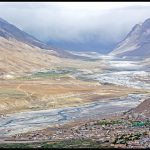




Thank you. As someone who’s looking to get licensed this was really helpful.
this is really inormative and well written. thank you.
Best informative guide I have read as a beginner wanting to explore scuba diving. It answered all my queries in one spot!
Thank you for the appreciation.
Hi, Thanks for such informative blog. It is really helpful.
Although, can you tell me how this can be taken as career choice once a person is done with certifications.
I mean, do we need to contact these institutions for making this as career. Also, is it like permanent types or one can take some assignments on temporary basis in an year as well.
Hi, you have to work at the various Scuba Diving Centres across India or the World (say). You have get a job at these diving centres. Mostly, it’s kinda contractual type of jobs for six months or so. After that, you can move to another centre in another part of the world. So, after being a Divemaster or Scuba Instructor, it’s really a cool job provided you get employed with a good diving centre.
Hi,
Thank you so much for giving an in depth knowledge in scuba diving courses. It was really helpful.
I learn that you are not in the industry now. Still if you know, kindly let me know, if one takes it up as a profession, the average remuneration earned by a qualified diving instructor in India and abroad.
this is the best introductory text on internet about scuba diving. thank you.
Hi Solobackpacker, a very nice article giving all micro details about scuba diving and certification. Thanks
Just a query if someone wants to start a diving school in India from which government body needs approval? What could be the cost for the setup?
Hi, Dive centers are basically registered with the Department of Tourism. Their diving boats should be registered with Deputy Commissioner office/ Department of Fisheries or with Department of Shipping. For operation in protected areas, these boats should have the permission of Chief Wild Life Warden. Then there requirements of certified instructors, divemasters, certified equipment etc. The cost depends on all these factors.
Really helpful post. Many thanks for updating the post with relevant recent info! I was wondering if the situation re diving schools has still not improved in Netarani etc even in 2021?
Hi, It is not about the conditions of the diving school. It’s actually about the condition of the diving sites. We can’t compare the diving sites located in the mainland coastal areas with the diving sites in Andaman. It is all about the pure joy of underwater world, that keeps you motivated for diving and then onward certifications. 🙂 I don’t think that Netrani and other sites can match that experience.
Hi, indeed helpful review also comments and each replies of yours. One thing that i need is to know more certain is your opinion or knowledge about the current course fees (beginner and advanced) including materials and accomodation as well as fooding for that specific institution?
Hi, It depends on the accommodation opted by you. Expect to pay 45k-50k approx for both the course (Beginner and Advanced) while staying in a basic hut at the dive institute.
Does any programme consists of 3 month’s time duration. I don’t want to get over it in just a week.
No, a single program doesn’t run for 3 months, unless you are gradually moving to the level of divemaster or instructor. In three months duration, you can get many certifications as you progress through Open Water Diver, Advanced Open Water Diver, Deep Diver, Rescue Diver and Divemaster courses. In between, you can have as many fun dives (on payment basis) as you wish, if you wish to enjoy this for three months.
Hi, are you still active in this field and at A&N please help me for my sister
She wants to do a course in diving, My contact number is 9028540437.
Please text me your number.
Regards,
Mandar Shidore
Very helpful. Thanks for basic insight for many novices.
It is very valuable for me
Very neatly explained. Thanks. Looking forward to learn swim first and then go for certification as I also had one very shallow scuba dive recently and I felt the same. Thanks again
Havelock island will make you sick people unfriendly once you give money you are untreated badly specially few scuba institutions
Its Mafia like place I dont ever recomend Havelock
Whatever, but this is the best place for Scuba Diving Certifications in India at the great price. If not Havelock, then only Thailand, Vietnam or Indonesia.
helpful. thanks.
i m looking to do a diving course open water course or any other course which allows me to dive anywehere in the world plus it should also make me eligible to be a certified scuba instructor. pls suggest me a course which fits this requirements.
As i m from go pls suggest me a good school for these courses.. Andaman Nicobar will also be fine with me if they have the best instructors
Thanks & regards
Hi, It takes few years and few lakh rupees to make a career as a Scuba Instructor. Start with Open Water Diver course and move on with the advanced course. For serious diving business, Andaman (Havelock Island) is the best in India.
extremely helpful
Hi, are you still active in this field and at A&N please help me for my son.
He wants to do a course in diving, I am a retired Army Offr. My contact number is 9811535779.
Please text me your number.
Regards, Col VN Kumar
Hi Sir, I don’t have any personal connection in Andaman. I did diving course few years ago and shared that information here. I can help you with the information, if you need any. Regards.
hey! your information was very helpful. I just wanted to know that is it that after doing a certified course in scuba diving, you still would not be allowed to dive anywhere in the world independently and would always require a professional with you?
Hi, Scuba diving is not a solo game. It is always carried out with a buddy. If you are certified, you can rent equipment anywhere in the world to dive with a buddy. That buddy need not to be professional, but a certified diver. You can even purchase or rent out the equipment for solo diving, but that is not at all recommendable. 🙂
Hi…I am Darshan. Your site was very informative. A small question…. If I take scuba diving as a profession and clear advance open water …..which is the best field to pursue as a profession
Hi, There is still a long way ahead after Advanced Open Water, if you seriously wish to make a career in Scuba Diving. Allow at least 4-5 years with the budget of at least Rs. 4 lac to be a diving instructor.
Hi, Thank you so much for sharing your experience. Can you please recommend me a course for scuba diving as i just have 7 days to spear.Can i do Advanced open water divers course i 7 days? and please tell me the expenditure as i have to travel from Delhi to Havelock
Yes, It’s possible in 7 days. The expenditure from Delhi to Havelock depends on the flight cost mainly.
Hi sid here , I would like to learn scuba diving in a professional way ,I am planning to do that coming May , can you tell me the total expenditure for 2 weeks of stay there at Havelock island .
Depends on your choice of accommodation. Basic hut for the diving students at Barefoot Scuba cost Rs. 300 per night, but not available for everyone. Resort rooms can cost Rs.2000 per night or more. You can try to get an accommodation in small guest houses near the market. They are very less in number and may cost Rs. 1000 or more for a night.
I am currently in 11th grade and am thinking of taking scuba diving as my profession, your website has helped me a lot and has cleared most of my doubts though I still have one question. Isn’t it a seasonal job? And if so what do you do when your not in business?
Hi, I don’t have the clear idea, because I am not in this industry. You are right that it’s a seasonal job. So, when a season ends at one place, people either goes for a vacation and leisure time at the home or they try to find out a short-time assignment at another dive center in other countries. So, the life is keep going smoothly. 🙂
Hi. Want would be the journey like if you want to get NAUI certificate and you’re just getting started?
so you start with PADI Open Water Diver= 4days, then PADI Advanced Open Water Diver= 3days Then how many days to get a NAUI certificate?
Hi, In NAUI courses, Scuba Diver certification is equivalent to PADI’s Open Water and Advanced Scuba Diver is equivalent to PADI’s Advanced Open Water Diver certification. The duration of the course depends on your training institute. You have to complete some classroom sessions, few hours of pool training and minimum 5 dives to get NAUI Scuba Diver certification. For NAUI Advanced Scuba Diver certification, minimum 6 dives are required. It takes 7-10 days to complete both the courses depending on the training programme of your diving institutes.
Thank you Solo backpacker ! Very useful article. So I am trying best ROI package for becoming professional. I see that you mentioned 4-5 years and budget of 4 lacs to do that.. So in 1 stretch (say 15-20 days) what all courses can I opt for? And which location? Sri Lanka seems costlier than India ? As I said, need help with most roi 😀 thank you so muchhhh in advance.
Hi, it’s not advisable to do it in a single stretch. Do it step by step. You can do Basic as well as Advanced Certification together in a week. Thereafter, you should do some fun dives to get the feel of scuba diving. You can get Deep Dive Certification also. For the next certification, Rescue Diver, you have to log minimum 20 dives before the commencement of the course. and it goes like this.
Allow some time before jumping from one certification to another. In India, Havelock Island is the best place for these courses. Abroad, Koh Tao in Thailand is the best and cheapest place for the Scuba Diving Certifications. Other good and cheap options are Gili Trawangan Island in Indonesia, Dahab in Egypt and Nha Thrang in Vietnam for the certification courses.
Thank you Solo Backpacker! this artilce is very helpful. I plan to take this course up too soon. Only the cost are a matter of concern at this point. Would be glad if you could guide me as to, what was the total expenses you had to bear for this experience?
Also just a suggestion, another excellent place for a dive is Sri Lanka (Unwatuna islands), though Lakshwadweep has a better marine diversity in my experience.
Hi, Lakshwadweep is indeed a beautiful place with better marine diversity, though no idea about Unwatuna. But, whenever I travel to Sri Lanka, I will definitely dive there. Thank you for this suggestion. I spent about Rs. 34000 as the course fee (Basic plus Advanced water diver combined package). They increase course fee every year for each course upto Rs.3000. So, it should be about Rs.38000 now. At Barefoot Scuba, I stayed in the basic hut, that cost me Rs.300 per night. Very basic hut on the stilt bamboo with a bed on the floor, a mosquito net and a fan. So, accommodation was very cheap. Good luck for the course.
This post is really inspiring and mentions about all the things I wanted to know about the OW dive certificate course. Thank you so much! C\heers!